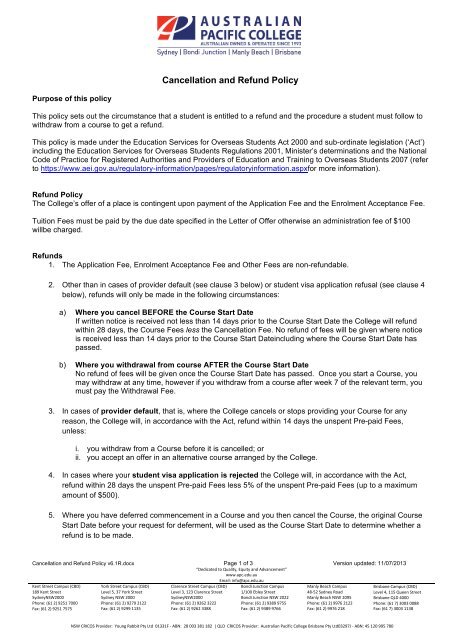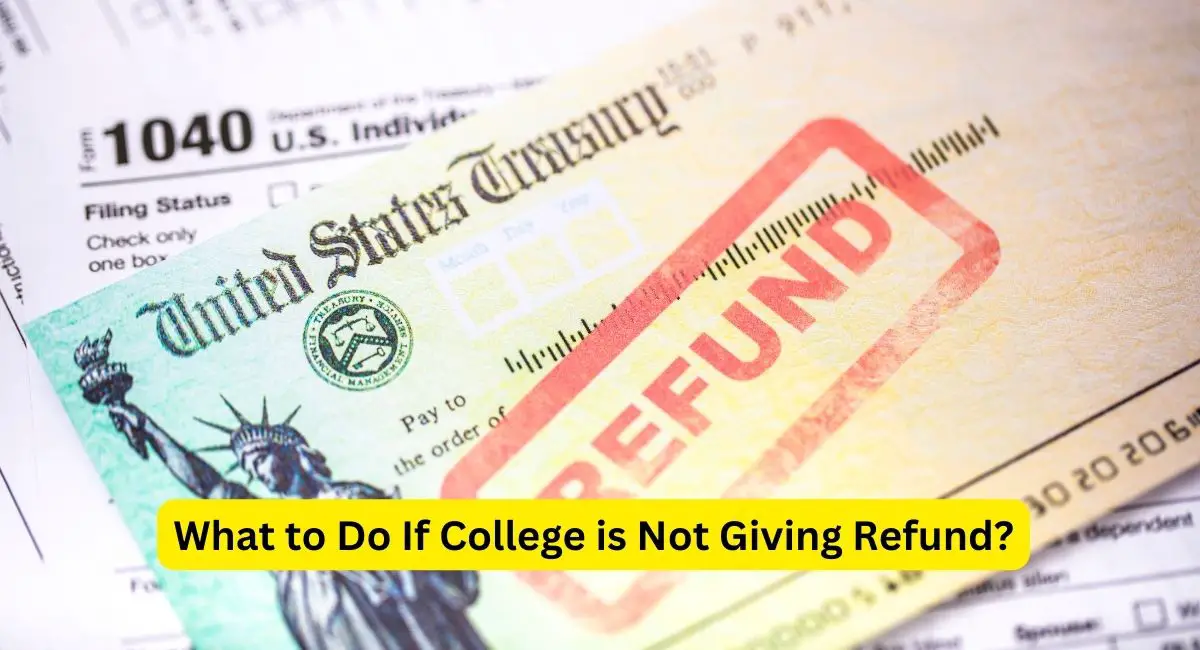If your college is refusing a refund, first review their refund policy and then escalate the issue via formal communications. Seek advice from an educational counselor or legal professional concerning your rights.
Dealing with the refusal of a college to issue a refund can be stressful and confusing. Start by scrutinizing the institution’s refund policy, which is usually outlined in your enrollment agreement or available on their official website. This policy will provide specific details on eligibility and the procedures for requesting a refund.
Keep all related documentation, including emails and receipts, as these will be crucial if you need to demonstrate your attempt to resolve the issue. Should your initial attempts prove unsuccessful, consider escalating your case by writing a formal letter to the college administration. Reaching out to an educational counselor or a legal expert is also advisable, as they can offer guidance tailored to your situation, ensuring you’re informed about your rights and potential next steps. Remember to communicate clearly and keep a record of all interactions with the college, as these might be necessary if legal action becomes a last resort.
Initial Steps To Request A College Refund
Securing a college refund requires an organized approach. Ensure you gather all necessary documentation related to your payments. This evidence includes receipts, bank statements, and any communication with the college. It’s crucial to fully understand the college’s refund policy. Policies often detail deadlines and valid reasons for a refund.
Check out the college’s official website or your enrollment agreement. The policy will guide your next steps and enhance your chances of success. Make notes on key policy points and any conditions for eligibility. This preparation will be the foundation of your refund request.

Credit: www.facebook.com
Communicating With The College
Start by writing a formal refund request letter to the college administration. Make sure to include your personal details, course information, and any relevant dates. Outline clearly why you believe a refund is justified.
After sending the letter, contact the college’s financial services. Persist in requesting an update on your refund status. Be polite but firm in your communication. Keep a record of all interactions for future reference.
When Refund Requests Are Denied
Refund requests can be denied by colleges for various reasons. It is critical to understand the college’s policies on tuition refunds. Look for deadlines and requirements in the policy details. Colleges often have strict guidelines about eligibility for refunds. For example, there might be a specific timeframe in which you can apply for a refund. Miss this window and you may not get your money back.
Appealing the decision is your next step if a refund is not granted. Start by writing a formal letter to the financial office. Be clear and concise about why you believe a refund is warranted. Include any relevant documents or proof to support your appeal. It is also a good idea to review your student agreement or contract. This document may hold key information to help your appeal.

Credit: www.yumpu.com
Exploring External Avenues
Encountering issues with college refunds can feel daunting. Consulting with student legal services is a proactive step. Campus-based legal advisors often offer free guidance. They understand the intricacies of academic institutions’ policies. Their expertise could be vital in advocating for your refund.
| Step | Action | Expected Outcome |
|---|---|---|
| 1 | Document your requests for a refund | Preparation for further action |
| 2 | Seek advice from student legal services | Understanding of legal rights |
| 3 | File a complaint with accreditation bodies | Potential for external pressure on college |
You should note each attempt to resolve the issue with the college. Collect all communication for evidence. Reach out to the school’s accrediting organization if needed. They set standards for educational institutions. A complaint with them might prompt the college to act. Keep all records organized for any necessary follow-up.
Protecting Your Rights
Understanding consumer protection laws is vital. These laws keep students safe from unfair practices. They help if your college won’t give back money.
It’s key to know your rights as a student. States have different rules. Familiarize yourself with local laws.
For small claims, gathering evidence is crucial. Receipts and emails are important. They prove you paid the college.
Starting a claim doesn’t need a lawyer. Costs are low for this path. Winning can get your money back.
It’s about being brave to take a stand for your rights. Stay calm and organized. The process might look tough. Yet, it can work out with time.
Preventive Steps For Future Enrollments
Before picking a college, it’s smart to check how they handle refunds. Students and parents should read the college’s refund policies with care. Key details to spot include deadlines for withdrawing with a refund. Also, look for any fees that might not come back to you.
- Ask about tuition insurance or payment plans that offer refunds. These could work.
- Many colleges have refund policies posted online.
- It’s wise to chat with the admissions office. They can give useful info.
- Talk with other students or read reviews. They might share refund experiences.
Lastly, using a credit card might give extra safety. Credit companies sometimes help with refunds.

Credit: www.mos.com
Frequently Asked Questions For What To Do If College Is Not Giving Refund
Can I Ask My College For A Refund?
You may request a college refund, but approval depends on the institution’s specific refund policy and deadlines. Check the college’s guidelines for precise procedures and eligibility criteria.
How Do I Request A Letter For Refund Of Money From College?
Contact your college’s administration office to request a refund letter. Provide your full name, student ID, and detailed reason for the refund. Ensure you attach any relevant documents and follow your college’s refund policy guidelines. Submit the request formally, either in person or via email.
How Do I Get A Refund From University?
To get a university refund, review the institution’s refund policy, fill out a refund request form, provide necessary documentation, submit the request by the deadline, and monitor its progress. Contact the university’s finance office with questions.
How Many Refunds Do You Get In College?
The number of refunds you can get in college varies by institution. Typically, colleges have specific refund policies outlined, often allowing for refunds within certain time frames or under particular circumstances. Check your college’s guidelines for exact details.
Conclusion
Dealing with the challenge of a college not issuing a refund can be taxing. Seek formal advice and persist in your efforts. Remember, stay informed and adhere to your institution’s policies. For more guidance, revisit useful resources or seek peer support.
Keep advocating for your rights with tenacity.

